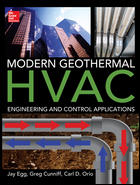When it comes to building design and operation, what role do engineers play in combating climate change? That is one question that ASHRAE will attempt to answer during a seminar at its 2014 Winter Conference, Jan. 18-22, in New York City.
The seminar, “Engineering our Cities to Meet and Beat the Challenges of Climate Change,” takes place Sunday, Jan. 19. It is part of a track focused on international design.
Speakers at the conference will share their thoughts on how the built environment profession can play a role in combating climatic conditions. One even poses the questions whether such a role should be mandated by law.
“We have international law protecting people, why not a law protecting the Earth,” said speaker George Adams, president of the Chartered Institution of Building Services Engineers (CIBSE). “At least 70% of current coal, oil, and gas reserves must stay put to limit climate change. Yet coal use rose by over 50% during 2000 to 2010. As we head toward 70% of the world's population being in cities, the increasing impacts of 'heat islands' are creating their own climates. I plan to discuss the status of cities and why the 5th international law is needed in addressing climate change impacts. Re-engineering energy supply and adaptation of the built environment is the key to success.”
Adams noted that in March 2010, international lawyer Polly Higgins proposed to the United Nations that Ecocide be the 5th Crime Against Peace. Such a move would require 86 signatures from the heads of United Nations member states to make one amendment to the Rome Statute.
“The engineering, landscaping, and building communities are in an ideal position to reduce the impact of cities on climate as well as creating and operating safe and effective cities in future climates that are likely to be 2ºC warmer than today,” said seminar chair Tim Dwyer of Bartlett School of Graduate Studies, University College London. “Our speakers consider how climate change will impact the HVACR professional, how systems are already failing to meet demands of a warming climate, and the impact that increasingly challenging environment has on air-conditioning systems. It concludes by considering the status of cities and why the 5th international law is needed to halt core causes of climate change.”
For complete conference information and to register, visit www.ashrae.org/newyork.










